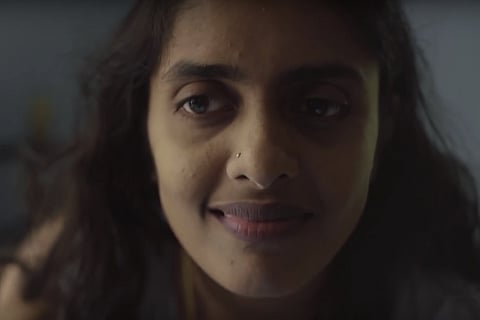Historian, feminist and social critic, Devika Jayakumari has also commented on the issue. She points out that while children do have sexual feelings and have sexual pleasure, the power dynamics in a child-adult, heterosexual encounter cannot be ignored: "...children's sexuality and pleasure are totally enmeshed in power relations, all of it, from thumb sucking to masturbation. That is, children's sexuality is shaped by the relations they have with their caregivers, who are adults and older and younger children, and none of these relations are power neutral. So let us not assume that a child's sexual encounter with an adult , if s/he finds it enjoyable, is powerfree!"
Devika ends her comment saying, "But perhaps a ban is a very bad idea. maybe the film should carry a warning that it may be disturbing to some, especially those with memories of unequal sexual encounters as children?
Counselling psychotherapist Gayathri Narayanan has said in Azhimukham, "Cinema has always glorified the stalker, passing it off as pure love. This has also shaped public perception to a great extent. The same is the danger with this film as well, what is the impact the film will have on a an abuser? Because a lot of abusers justify their actions claiming that the victim enjoyed the violation. This film encourages this very discourse." She adds that the film might give the abuser the idea that his victims will think back about him fondly when they grow up.
Actor Kani's father expressed his view on the film, requesting people not to see it as a defence because his daughter had acted in it.
An excerpt from his comment:
"I am going to hold the bull by the horn, If children can be 'nurtured and taught' by adults on every other subject why not on sexuality, why every sexual encounter between adults and children should remain in the framework of sexual 'exploitation' only? What happens to the 'right' of a child to have the 'choice' to have sex with anyone irrespective of age, sex and gender? Being life's only way of continuing existence why every sexual experience of a child should remain under 'taboo'? Hundred years back every male, including Gandhi and Sri Ramakrishna could be 'caught' and punished as pedophiles. We ought to know that a 'crime' exists only after a law is formulated, hence there are no eternal crimes, only changing 'perceptives' of crime. There are very many 'right' ways to live at the same time in any given historical context. I leave it here and invite you to read the subject proper. Let us learn to live in a 'plural' society accepting each other than to live under a monolithic one dimensional 'right'..."
Another person who feels that the film doesn't promote pedophilia, Ravi Shanker N, says:
"My overall impression is that this film is a critique of Patriarchy's control over the means through which a woman finds pleasure. Man would like her to feel it through their medium. Even in the case of the Peon chettan, the viewers are disappointed that the girl didnt crack down under Patriarchy. They also don't like the fact the girl simply sidestepped Patriarchy or ignored its mammoth presence in the form of the Peon Chettan's hard tool. The film cheated them of their favourite stances."
Responses to the film from survivors of child sexual abuse have been varied. One person said that while the film made for a "disturbing watch", she stood by the filmmaker's and actor's right to experiment and that "every artist has the right to fail."
An activist who works with child sexual abuse survivors and who did not want to be named said that the movie was simply about a woman's experiences and not on abuse: "Children are sexually aware is a reality that we need to accept. Most abusers behave the way the peon did, they groom children to like them. Also, everyone does not perceive or react to 'abuse' the same way. Many do not even categorise it as abuse. Why should all reactions be the same?"
Meanwhile, speaking to
Narada News, director Shailaja has said that her film does not make excuses for pedophilia: "I do not support child abuse or rape. I know the pain. If I ever see a child being abused, I would protect him/her with brickbats. Memories of a Machine does not intend to send a message or to romanticise child abuse. It is an attempt to portray a child’s natural thought towards sexual pleasure. Of what a child might feel before it is confronted with societal norms and morals."
Released in February this year, "Memories of a Machine" was screened at Seattle South Asian Film Festival and Bangalore Queer Film Festival 2016, among other platforms.
Watch:

